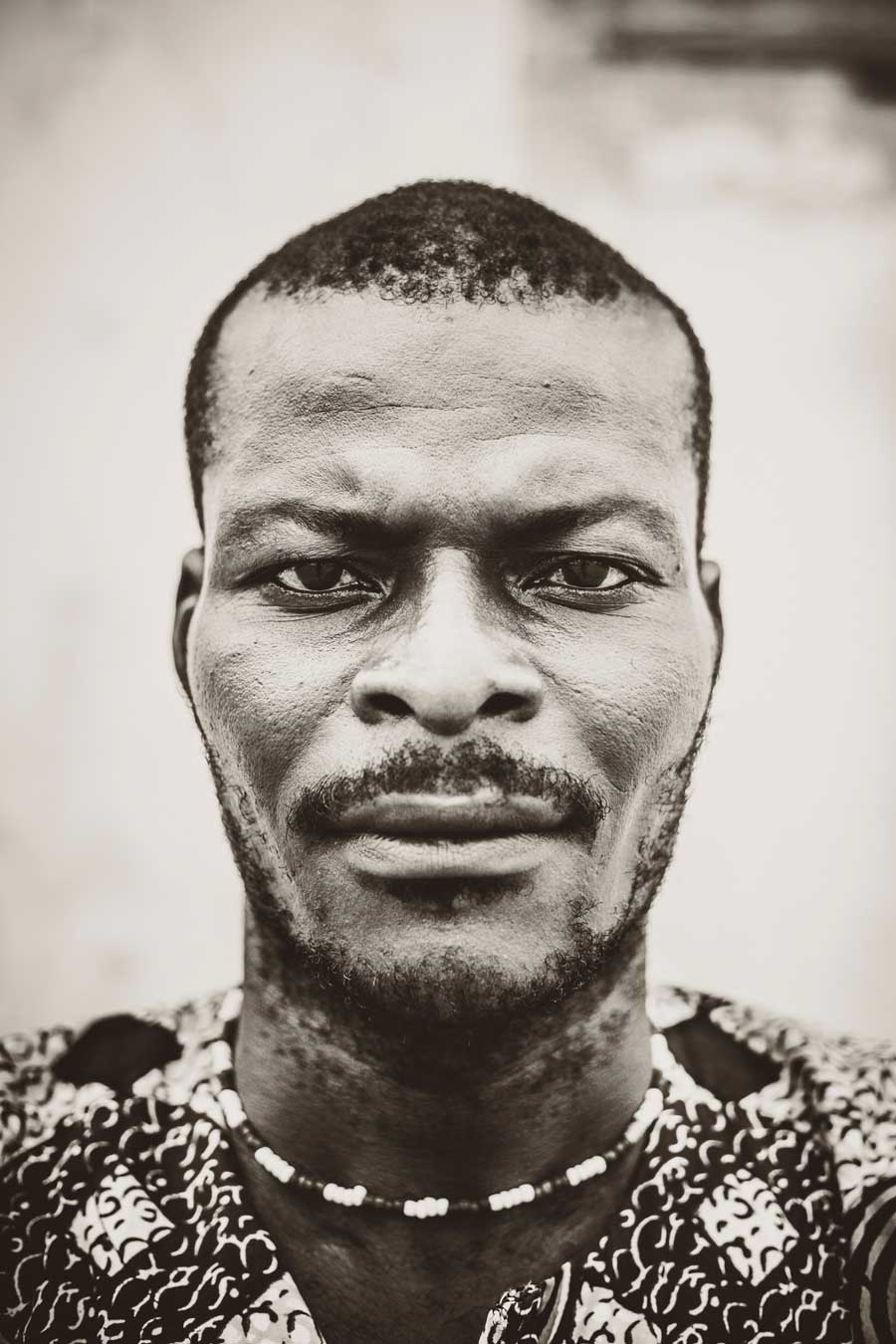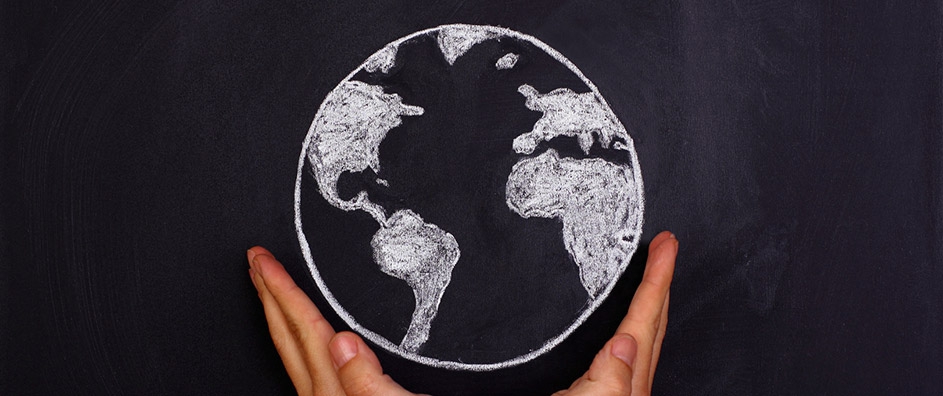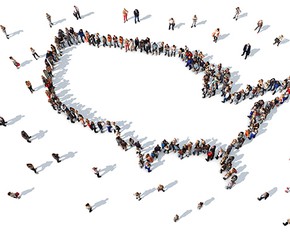The views expressed in our content reflect individual perspectives and do not represent the authoritative views of the Baha'i Faith.
O contending peoples and kindreds of the earth! Set your faces towards unity, and let the radiance of its light shine upon you. Gather ye together, and for the sake of God resolve to root out whatever is the source of contention amongst you. Then will the effulgence of the world’s great Luminary envelop the whole earth, and its inhabitants become the citizens of one city, and the occupants of one and the same throne. – Baha’u’llah, Gleanings from the Writings of Baha’u’llah, p. 217.
OK, here’s the question: do you think of yourself as a citizen of your country, or a citizen of the world?
Recently I gave a talk in Reno, Nevada for a Baha’i holy day. Before the talk I’d been thinking about the whole concept of citizenship, having just written a series of essays on the subject for BahaiTeachings.org, so I asked the crowd there at the event if they thought of themselves primarily as citizens of the United States or citizens of the world. I put it this way: As a citizen, do you have a national identity, or a global identity?
A few months ago, I later learned, the BBC asked the same basic question of people in many different countries. They hired the polling firm GlobeScan to pose the question (“I see myself as more of a global citizen than as a citizen of my country—agree or disagree?”) to 20,000 respondents in 18 nations, and the outcome of that international poll shocked many people, me among them. For the first time in human history, a majority (51%) of people said they see themselves more as global citizens than as national citizens.
In all human history, the pollsters pointed out, that has never happened before.
In Reno, the audience’s response surprised me, too—more than 90% of the people attending my talk identified primarily as global citizens, with about 10% indicating they considered themselves American citizens first. Of course, this was no scientific poll—that overwhelming we-are-the-world response may have been conditioned by the fact that many in the audience were Baha’is, who typically see themselves as citizens of the entire planet and drops in the ocean of one humanity:
Let not man glory in this that he loveth his country, let him rather glory in this that he loveth his kind. Concerning this We have previously revealed that which is the means of the reconstruction of the world and the unity of nations. Blessed are they that attain thereunto. Blessed are they that act accordingly. – Baha’u’llah, Tablets of Baha’u’llah, pp. 127-128.
So it seems, according to this large scientific poll and several others on the subject, that the world has begun to move in the direction Baha’u’llah taught. People around the planet increasingly identify as global citizens, according to that new BBC poll. It’s hard to imagine a more fundamental and remarkable shift of consciousness. In 2002, the same poll showed only 42% of the global population considered themselves world citizens.
 Of course, one average number doesn’t tell the whole complex story, and this major global shift hasn’t happened equally in all places at once. If you dig a little deeper into the poll, you’ll see that the world-citizen trend shows particularly strong growth in developing countries, “including Nigeria (73%, up 13 points), China (71%, up 14 points), Peru (70%, up 27 points), and India (67%, up 13 points)… Overall, 56 percent of people in emerging economies saw themselves as global citizens rather than national citizens.”
Of course, one average number doesn’t tell the whole complex story, and this major global shift hasn’t happened equally in all places at once. If you dig a little deeper into the poll, you’ll see that the world-citizen trend shows particularly strong growth in developing countries, “including Nigeria (73%, up 13 points), China (71%, up 14 points), Peru (70%, up 27 points), and India (67%, up 13 points)… Overall, 56 percent of people in emerging economies saw themselves as global citizens rather than national citizens.”
In the more industrialized and developed nations, the poll’s percentages skewed lower: “In Germany, for example, only 30% of respondents see themselves as global citizens.” In the United Kingdom, 47% of the populace identified first as global citizens, and 50% identified first as citizens of Great Britain. Interestingly, those poll outcomes closely track the final results of the recent Brexit vote to leave the European Union.
If you break down that UK Brexit vote demographically, you can see this trend toward global citizenship in even more stark terms: fully 75% of Britain’s young people (ages 18-24) voted to remain in the EU; while 61% of older voters (aged 65+) voted to leave the EU. Clearly, the younger generation does not see internationalism, global citizenship or increased immigration as a threat, but instead as an opportunity.
Shoghi Effendi, the Guardian of the Baha’i Faith, described the emerging global consciousness of world citizenship this way:
The love of one’s country, instilled and stressed by the teaching of Islam, as “an element of the Faith of God,” has not, through this declaration, this clarion-call of Baha’u’llah, been either condemned or disparaged. It should not, indeed it cannot, be construed as a repudiation, or regarded in the light of a censure, pronounced against a sane and intelligent patriotism, nor does it seek to undermine the allegiance and loyalty of any individual to his country, nor does it conflict with the legitimate aspirations, rights, and duties of any individual state or nation. All it does imply and proclaim is the insufficiency of patriotism, in view of the fundamental changes effected in the economic life of society and the interdependence of the nations, and as the consequence of the contraction of the world, through the revolution in the means of transportation and communication — conditions that did not and could not exist either in the days of Jesus Christ or of Muhammad. It calls for a wider loyalty, which should not, and indeed does not, conflict with lesser loyalties. It instills a love which, in view of its scope, must include and not exclude the love of one’s own country. It lays, through this loyalty which it inspires, and this love which it infuses, the only foundation on which the concept of world citizenship can thrive, and the structure of world unification can rest. It does insist, however, on the subordination of national considerations and particularistic interests to the imperative and paramount claims of humanity as a whole, inasmuch as in a world of interdependent nations and peoples the advantage of the part is best to be reached by the advantage of the whole. – Shoghi Effendi, The Promised Day is Come, p. 122.
Next: The Age—and the Ages—of Unity
You May Also Like
Comments

















I would not consider EU or Brexit as a truly democratic system or process, just like our system in US is not a true democracy, but rather a "Constitutional Republic" (Commonly known as Jeffersonian Democracy). It has many elements of the true democratic process, but with a twist (One Person, One Vote (1) or Corporate Personhood (2) and Votes for Sale (3)). True Democracy without a "base on some common ideology" would lead into confusion and bad decisions. The world is moving toward regional unification at this time, as we have seen in The European Union ...(4), South American Unity (5), Pan-Asianism Unity (6), African Union (7), etc. The final stage of World Unification will occur toward the end of Bahai Dispensation (8).
Currently as of today over 4 million Brexit voters regret their decision and have turned into Regxit. (Regret + Exist) 2nd EU Referendum (9). This is perhaps one of the best examples of confused democracy (“vote then asks why we were not told what would happen”)
Click the Site below for 2nd referendum as of today over 4 million regret it.